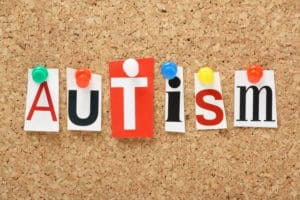 Autism awareness is quickly spreading throughout the United States. It is defined as a disorder of neural development characterized by impaired social interaction and communication. Symptoms are typically noticed before a child turn three years of age and the number of diagnoses has significantly increased since the 1980’s.
Autism awareness is quickly spreading throughout the United States. It is defined as a disorder of neural development characterized by impaired social interaction and communication. Symptoms are typically noticed before a child turn three years of age and the number of diagnoses has significantly increased since the 1980’s.
To help you better understand how to provide help for children with autism, consider these things they cannot tell you, but wish you knew.
I am a child.
While many children have autism spectrum disorders, it does not define who they are. Although they may suffer from autism, there is more to learn about them and love.
As adults, we are able to shape how we define ourselves for others to perceive us. Kids, on the other hand, do not have this advantage yet. They are still learning about themselves and are easily influenced by the things around them. It is important to look past the autism and treat a child with it like you would any other.
My senses are different
Many adults fail to truly understand that children with learning disabilities in school like autism often do not experience senses, like sights and sounds, the same as we do. For this reason, they may often appear to be withdrawn or mean. The truth is that they are just trying to defend themselves from uncomfortable situations.
It is important to be aware of things like loud music, large crowds, strong smells, and even lighting. All could have adverse effects on a child with autism as their senses are very sensitive.
Know the difference between what I won’t do and what I can’t do.
Sometimes, when adults see that an autistic child is not responding, they assume that the child is refusing to do something. In reality, there could be a high chance that they simply do not understand you.
To better communicate, those who study applied behavior analysis — also known as ABA therapy — recommend that you physically walk over to the child, get their attention, and speak in plain words. This helps them understand what is being asked of them, and they will have a better response.
Focus on what I can do rather than what I can’t.
Any child will learn to thrive in an environment that makes them feel as if they can do anything rather than one that constantly reminds them of what they cannot do. Find their strengths, build on them and provide constructive criticism when necessary.
There are many schools for children with learning disabilities and special education programs that provide help for children with autism. One of the most important aspects of successful treatment is continued help for children with autism at home. Many parents and adults around children with autism lose sight of how to care for them. Using the above tips, you will think twice about your actions and help your child make great strides toward developmental improvements.